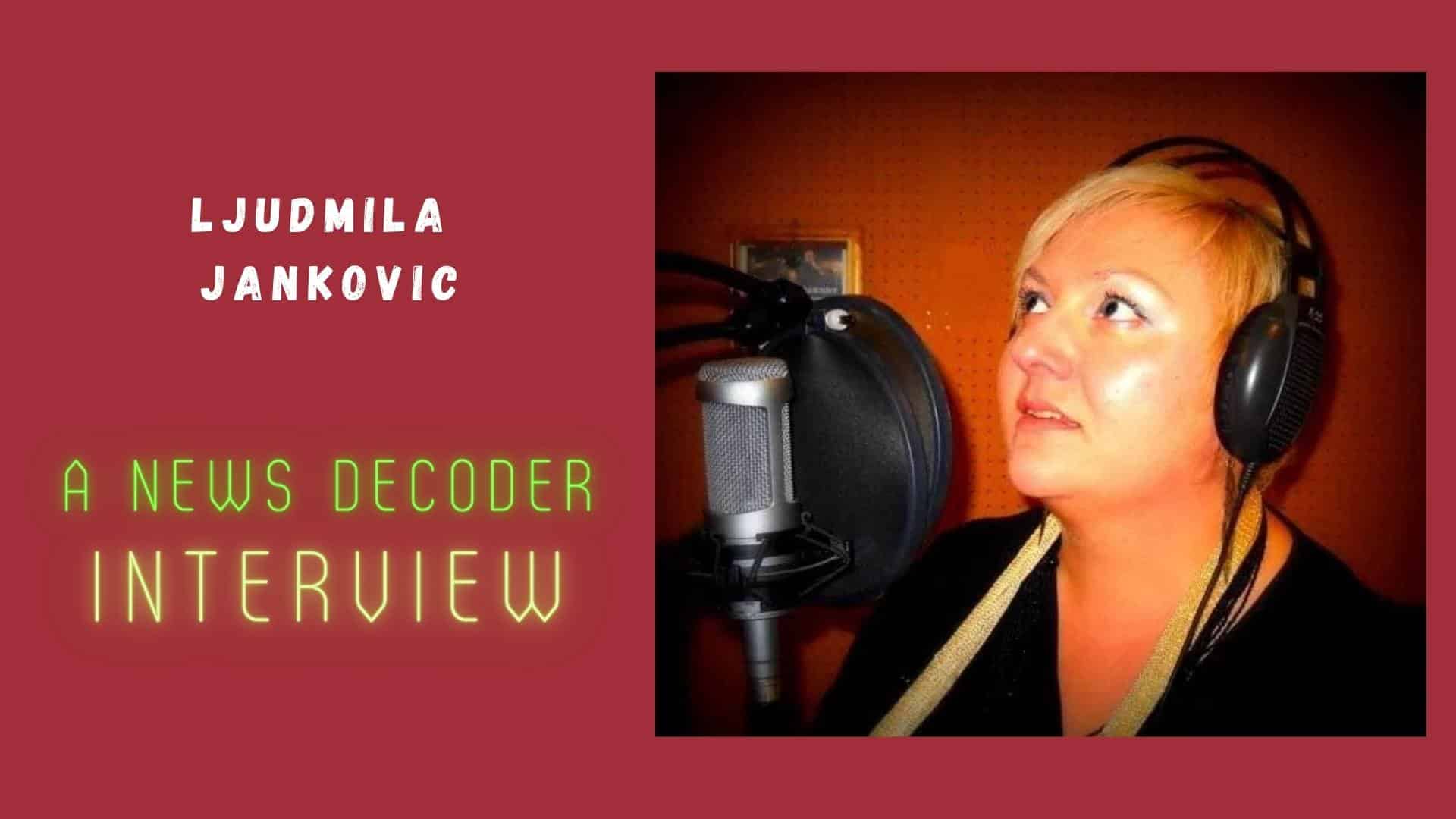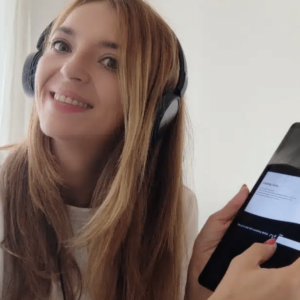Ljudmila Janković is a journalist in the Balkans, where speech isn’t quite free. But podcasting there might help foster a more independent media.

Ljudmila Janković. (Photo courtesy Press Freedom Foundation)
In the Western Balkans, journalists operate within a challenging environment that makes it difficult to do critical and independent reporting, a cornerstone of any democratic society.
The Balkans, situated in southeast Europe, have weathered historical upheavals, political turbulence and a complex interplay of cultures. Within this context, journalists navigate a terrain where the pursuit of truth often encounters significant obstacles.
To delve deeper into these challenges, in December 2023 News Decoder spoke with Ljudmila Janković, a seasoned journalist deeply embedded in the Balkan media landscape.
Janković calls the Austro-Hungarian-style town of Senta home. She is the podcast host for Press Freedom Serbia, where she talks about current affairs in the Balkans, as well as a TV show host, blogger and artist.
In the complex realm of Balkan journalism, Janković emphasizes the critical importance of press freedom, asserting that it is indispensable for genuine journalism. As the region grapples with challenges, she calls for resources and protection to empower local voices, especially in the evolving landscape of podcasts, which she sees as a potential platform to inform and engage the public.
ND: What inspired you to pursue journalism?
Janković: My professional path stretched through all kinds of media. If I were to try to list them, it would last until tomorrow. But the point is that I always fought for the truth and always worked in independent media. When they stopped being that, and there were some, especially in the case of television, I moved on. I’m only interested in the truth. No matter what. Press freedom is one of the most important things in journalism, if not the most important. That’s why I joined Press Freedom Foundation Serbia and am happy to be here. Where there is no press freedom, there is no journalism, only fabricated truth.
ND: What challenges do journalists face in the Balkans?
Janković: Media that fight for the truth are anatomized by the state, of course, because they criticize it. They do not receive any funds. If you have no funds, you have no independence. Nobody sees you and you have to be present. But if you get government funding, you don’t have independence.
Today’s media here under the button of the state are only transmitters of the dictates of those in power, nothing else.
Even when we sometimes don’t have financing resources or very little, and that happens from time to time, we continue to work precisely because someone has to point out the truth, especially in Serbia, so maybe people will come to their senses sooner or later. Democracy here exists only on paper. People should be aware of that.
ND: Where do podcasts stand as a media outlet in the Balkans? Are they gaining popularity among the public?
Janković: More. The podcast is still in its infancy here. People don’t really understand the meaning and the form of the podcast, although it is actually a form of a one-man show or an interview. It might be gaining some popularity, but among the younger population, in fact, a podcast is a double-edged sword, as people think anyone can make a podcast nowadays.
So how do you filter whether to trust it or not? I think people listen to podcasts that are entertaining rather than informative or political, which means that they would listen to a political podcast, for example, only if they trusted the person making it. In my humble opinion. Especially here, there is a lot of room for quality podcasts to inform people about the truth because they don’t even realize how much they need it. The right information that belongs to education is actually needed by all of us.
ND: How can podcasting empower local voices and independent journalists in the region to speak out on press freedom issues?
Janković: Give them resources, protect them from government influence, threats and everything else. Free people from fear, those who make podcasts and their listeners, to give the same chance to all media, not only those at the cradle of the state. This is especially true for podcasts and educating people in terms of podcasts. We are returning to better visibility. Let the same conditions be given to everyone, and we here are as far from that as from last year’s snow.
ND: How can we engage the younger generations in press freedom discussions via podcasts?
Janković: Again, educate them, and to do it through topics that interest them. Make them aware of how important the truth is. However, since education and everything else in our country and in the Balkans has been systematically destroyed for decades, that work is long lasting and very painful and education is the key. Young people are not stupid and see much more than we think. I think that many more forums and lectures should be held on this topic, so that even young people understand how big the problem is, because they are the ones who can change a lot of things, including what we are talking about.
ND: What future trends do you anticipate for podcasting in this context?
Janković: You are asking me something that no one can answer. We in the Balkans do not know what will happen in six months, [let alone] what the trends will be in the future. If very soon things do not change in terms of freedom, not only of the media, but in general, the very meaning of the word ‘future’ is called into question. But let’s wait for the elections in December in Serbia. I’m an eternal optimist. I have to be.
ND: What advice do you have for aspiring podcasters looking to delve into press freedom and journalism in the Balkans?
Janković: This is a very hard question. The times we live in are extremely hard for anyone who believes and fights for democracy. I would advise them not to forget at any moment what they are fighting for and how important it is to provide objective information, as well as to work hard on their ability to identify real news in the sea of fake news, and most of all, to be fearless in defending the truth. I think all that can be sublimated in one sentence, which a dear friend of mine often mentions, ‘You have to live here to believe it.’ People know very little about the state of the media in the Balkans, especially in Serbia.
Janković will be the next guest on “Sounds Like Europe,” the new WePod project podcast that premieres today. Supported by the Creative Europe Programme, “Sounds Like Europe” reveals the process of making a podcast that connects different European countries. Listen to the first episode, “How to create a cross-border podcast,” on Spotify or Apple.
Three questions to consider:
- What is one of the challenges that journalists in the Balkans face?
- How can podcasting help people tell important stories in places where an independent press struggles?
- If you were hired to do a podcast in your country what would you report on?

Andrea Knezevic is multimedia communications specialist for News Decoder. A seasoned communications specialist, journalist and university professor with more than a decade of experience honing the art of storytelling and effective communication, she splits her time between Paris and Brussels.
Read more News Decoder articles about journalism:
